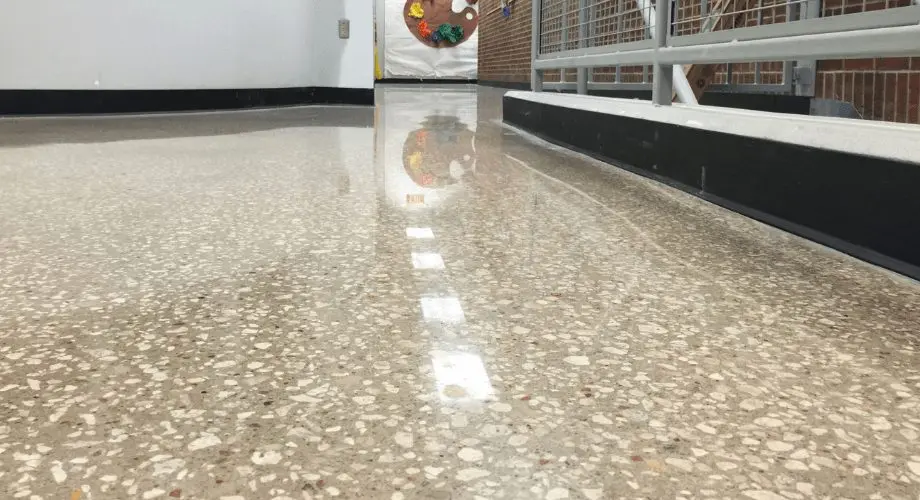Table of Contents
Flooring is pivotal and indispensable in every industry, serving as the fundamental base for operations and activities. It sets the tone for a space’s overall aesthetics and profoundly influences its safety, comfort, and functionality. From sleek and polished surfaces to rugged and durable materials, the choice of flooring can significantly impact the efficiency and productivity of a work environment.
This article will explore the diverse flooring options available across different industries, exploring their unique characteristics and suitability for various applications. Whether it’s the resilient and slip-resistant properties required in healthcare facilities or the high-performance and low-maintenance features demanded by manufacturing plants, understanding the distinct flooring needs of each industry is essential for creating optimal working environments.
Industrial flooring
In industries where heavy machinery is used, such as manufacturing and production plants, the flooring experiences constant wear and tear. Hence, industrial flooring in London must be sturdy enough to withstand the daily onslaught of mechanical stress, chemical spills, and foot traffic. Additionally, industrial flooring must adhere to strict safety standards to prevent accidents and injuries.
Concrete flooring
Concrete flooring is known for its durability, affordability, and easy maintenance. These floors can withstand heavy loads and are resistant to chemicals, making them suitable for warehouses, factories, and workshops. Concrete flooring can also be customized with various finishes, such as epoxy or polyurethane coatings. While there may be more visually appealing options, concrete flooring’s practicality makes it a sought-after choice in many industries.
Vinyl flooring
Vinyl flooring is a prevalent, versatile, and cost-effective option that can mimic the look and feel of other materials, such as wood or stone. It is resistant to moisture and heavy stains, making it ideal for areas with high humidity or spillage, such as kitchens, restrooms, and laboratories. Its cushioned surface also offers comfort and reduces noise levels in busy workspaces. Moreover, vinyl flooring is easy to clean and maintain, making it a popular choice for healthcare facilities and educational institutions.
Rubber flooring
Rubber flooring is renowned for its slip-resistant qualities and shock-absorbing properties, making it a top choice in industries where safety is paramount. Its high durability and low maintenance suit high-traffic areas, such as gyms and sports facilities. Rubber flooring comes in various colors and textures, offering functionality and aesthetics.
Epoxy flooring
Epoxy flooring is a seamless, smooth, and highly durable option for industrial spaces that require heavy-duty performance. It is made by combining resin and hardener to create a chemical bond that results in a surface resistant to chemicals, heat, and moisture. Epoxy flooring is commonly used in areas requiring frequent cleaning, such as food processing plants and pharmaceutical labs. The glossy finish also adds a touch of modernity to the workspace.
Commercial flooring
Unlike industrial flooring, commercial flooring is designed for office spaces and retail establishments where aesthetics are crucial in creating a welcoming and professional atmosphere. While functionality remains vital, commercial flooring must also reflect the brand’s image and cater to the needs of employees and customers.
Carpet tiles
Carpet tiles are a popular choice in commercial settings due to their versatility and how easy it is to install. They come in various patterns, colors, and textures, allowing endless design possibilities. Additionally, carpet tiles provide acoustic insulation and enhance indoor air quality by removing allergens and dust particles. They are perfect for office spaces, conference rooms, and retail stores.
Hardwood flooring
Hardwood flooring is a beautiful, timeless option that can add elegance and warmth to any commercial space. Its natural beauty appeals to many industries, from luxury boutiques to corporate offices. However, hardwood floors require regular maintenance to prevent scratches and damage from high heels and heavy furniture.
Laminate flooring
Laminate flooring is a budget-friendly preplacement for hardwood floors, offering the same aesthetic appeal at a lower cost. It comes in various styles and colors, mimicking the appearance of wood, stone, or tile. Laminate floors are solid, durable, and easy to maintain, making them suitable for high-traffic areas in commercial buildings.
Luxury vinyl tile (LVT)
Luxury vinyl tile, or LVT, is a high-end flooring option combining luxury and durability. It can look like various materials, such as wood or stone, while offering superior performance and low maintenance. LVT is water-resistant and easy to clean, ideal for commercial spaces where spills occur often.
Terrazzo flooring
Terrazzo flooring is popular in commercial and industrial settings due to its durability, versatility, and aesthetic appeal. It is made by embedding chips of marble or other materials into cement or resin, creating a unique pattern with endless design possibilities.
Terrazzo flooring is highly resistant to water and stains, making it perfect for use in schools, hospitals, and shopping centers. It can also be customized to include logos or designs, adding a personal touch to the floor’s appearance. However, terrazzo flooring requires professional installation and regular maintenance to preserve its beauty and longevity.
The bottom line
Industrial and commercial flooring options vary depending on the specific needs of each industry. While durability is crucial in industrial settings, aesthetics play a significant role in commercial spaces. It’s essential to consider factors such as safety requirements, maintenance costs, and design preferences when selecting the appropriate flooring for a particular industry. With the right flooring, businesses can create safe and attractive working environments that enhance productivity and reflect their brand’s image.





